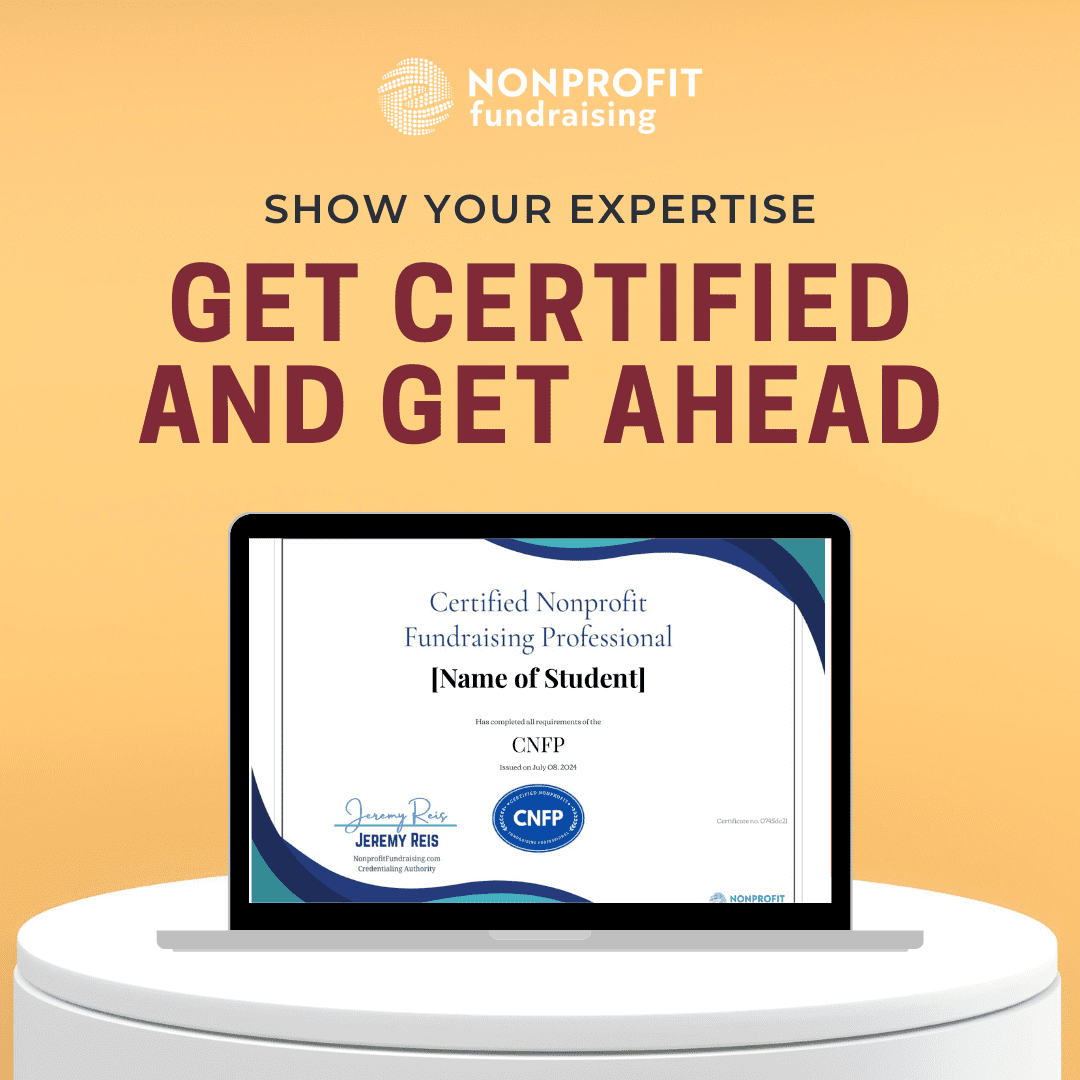Building strong relationships with donors is essential for any non-profit organization, as these relationships can lead to ongoing support and help fund crucial programs and initiatives. However, it’s not enough to simply solicit donations and move on to the next potential donor. To build long-lasting relationships, you need to connect with donors on a personal level and show that you appreciate their contributions. In this post, we’ll share 7 tips for building more authentic donor relationships, from keeping your promises to respecting their time and privacy. By following these tips, you can establish a strong rapport with your top contributors and keep them engaged and supportive for years to come.
1. Keep Your Promise
Building strong relationships with donors is an essential part of any successful nonprofit or charity organization. Donors are the lifeblood of these organizations, providing the financial resources needed to support their mission and make a positive impact on the world. But, to keep donors engaged and committed to your cause, it is crucial to build trust and establish long-term relationships with them. One of the most critical elements of building and maintaining these relationships is keeping your promises.
When you make a promise to a donor, whether it’s a commitment to a specific project or a pledge to acknowledge their contribution, it’s vital to follow through on that promise. Failing to do so can damage the trust and confidence that the donor has in your organization and could lead them to withdraw their support altogether. A broken promise not only reflects poorly on the organization but also reflects poorly on the individuals responsible for making that promise.
Communicate Regularly with Donors
One of the simplest and most effective ways to keep your promises is to communicate regularly and effectively with your donors. Make sure you are clear about what you can and cannot deliver, and keep your donors informed of any changes or delays that may occur. Honesty and transparency are critical elements in building trust and credibility with donors, and it’s essential to maintain these values throughout the relationship.
Own Up to Mistakes
Another critical aspect of keeping your promises is to own up to any mistakes or miscommunications that may occur. No one is perfect, and sometimes things don’t go according to plan. If you’ve made a mistake or missed a deadline, it’s essential to take responsibility for the situation and seek to make things right. Apologize to the donor, explain what happened, and outline what you’re doing to fix the issue. By owning up to your mistakes, you demonstrate to donors that you value their support and are committed to building a long-term relationship with them.
Show Gratitude
In addition to keeping your promises, it’s also essential to show gratitude and appreciation for your donors’ contributions. Donors want to feel valued and appreciated, and it’s up to your organization to show them that their support is making a difference. Send personalized thank-you notes, acknowledge their contributions publicly, and provide updates on the impact of their donations. By showing donors the impact of their support, you demonstrate that their contributions are making a real difference in the world.
Building and maintaining relationships with donors is not a one-time event. It’s an ongoing process that requires commitment and effort from your organization. By keeping your promises, communicating effectively, and showing gratitude and appreciation, you can build strong, long-term relationships with your donors. These relationships are critical to the success of your organization and can help ensure that you have the resources you need to make a positive impact on the world.
Keeping your promises is essential to building and maintaining relationships with donors. It’s important to communicate regularly and effectively, own up to any mistakes, and show gratitude and appreciation for your donors’ contributions. By doing so, you demonstrate that you value their support and are committed to building a long-term relationship with them. These relationships are crucial to the success of your organization and can help ensure that you have the resources you need to make a positive impact on the world.
2. Listen More Than You Talk
Listening is a crucial skill in any relationship, but it is especially important when it comes to building relationships with donors. When donors feel like they are being listened to, they are more likely to continue supporting your cause and to become more invested in your organization. Here are some tips for listening more than you talk to build relationships with donors.
Ask open-ended questions
When you’re talking to a donor, try to ask open-ended questions that encourage them to share their thoughts and feelings. Instead of asking yes or no questions, ask questions that begin with words like “what,” “how,” or “why.” This will allow the donor to provide more information and to feel like they’re being heard.
For example, instead of asking, “Do you support our cause?” you could ask, “What interests you about our cause?” This question will give the donor an opportunity to explain why they support your cause and what they hope to achieve through their donations.
Show empathy
When a donor is sharing their thoughts or concerns with you, it’s important to show empathy. Put yourself in their shoes and try to understand where they’re coming from. Reflect back to them what you’re hearing to ensure you’re fully understanding their thoughts and feelings. This will make the donor feel like they are being heard and that their concerns are being taken seriously.
For example, if a donor is expressing concerns about the impact of your organization’s work, you could say, “It sounds like you’re worried about whether your donations are making a difference. Is that correct?” This shows that you’re paying attention to what they’re saying and that you care about their concerns.
Listen without interrupting
It’s important to let the donor finish speaking before you respond. Interrupting them can make them feel like you’re not really listening to them or that you don’t value their input. Give them space to share their thoughts and feelings, and then respond in a thoughtful and respectful manner.
Take notes
When you’re talking to a donor, take notes about what they’re saying. This will help you remember their concerns and feedback, and it will show the donor that you’re taking their input seriously. You can refer back to your notes later to follow up on any issues or concerns the donor raised.
Follow up
After you’ve listened to a donor, make sure to follow up with them. Let them know that you heard their concerns and that you appreciate their feedback. If there are specific actions you plan to take based on their input, let them know what you’re doing and how it will impact the organization’s work.
For example, if a donor expressed concerns about the effectiveness of your organization’s programs, you could follow up by saying, “Thank you for sharing your concerns with me. We are currently reviewing our programs to ensure that they are as effective as possible. We will keep you updated on our progress.”
Listening more than you talk is a key strategy for building relationships with donors. When donors feel like they are being heard and that their input is valued, they are more likely to continue supporting your organization and to become more invested in your cause. Use open-ended questions, show empathy, listen without interrupting, take notes, and follow up to ensure that your interactions with donors are productive and meaningful.
3. Get Personal
Building strong relationships with donors is key to the success of any non-profit organization. These individuals provide the funding and support needed to carry out the mission and make a real impact in the world. However, simply asking for donations is not enough to create a lasting connection with your donors. To truly engage with them and build a meaningful relationship, it is important to get personal.
Showing your personality and sharing your story is a powerful way to connect with your donors. They want to know the people behind the organization and what drives your passion for your cause. This can be done through a variety of channels, such as newsletters, social media, and email updates.
When writing these pieces, don’t be afraid to let your personality shine through. Use your own voice and tone to connect with your donors on a more personal level. Share stories about your own experiences and how they have shaped your work with the organization. This will help to build trust and create a sense of familiarity between you and your donors.
Showing your personality and sharing your story is a powerful way to connect with your donors.
Another way to get personal is to acknowledge your donors as individuals. Take the time to learn their names and interests, and tailor your communication to speak directly to them. Address them by name in your emails and thank-you letters, and reference any previous donations or involvement they have had with your organization. This will make them feel valued and appreciated, and more likely to continue supporting your cause.
Personalization can also extend to your fundraising campaigns. Rather than sending out a generic ask for donations, create targeted appeals that speak directly to specific groups of donors. For example, if you know that a certain donor is passionate about animal welfare, send them an appeal that focuses on the impact their donation will have on animals in need. This will make them feel more connected to the cause and more likely to donate.
Finally, getting personal means being transparent with your donors. Share your successes and challenges, and be honest about the work that still needs to be done. Donors want to feel like they are part of a community that is working towards a common goal, and being transparent helps to create that sense of community.
Getting personal is a powerful way to build relationships with your donors. Show your personality, acknowledge them as individuals, personalize your communication, and be transparent. By doing so, you will create a sense of connection and trust that will help to secure long-term support for your organization.
4. Be Transparent
Being transparent is an essential aspect of creating authentic donor relationships with a nonprofit organization. Transparency involves being open and honest about your organization’s finances, operations, and plans for the future. Donors want to know where their money is going and how it’s being used. If they feel like they can’t trust you, they’ll take their support elsewhere.
When donors give to a nonprofit organization, they want to be sure that their money is being used for a good cause. Donors are more likely to give when they have confidence in the organization’s ability to use their funds effectively. Transparency plays a crucial role in building that trust.
Financial Reporting & Operations
Transparency begins with financial reporting. A nonprofit organization should be open and honest about its finances. This means providing detailed financial reports to donors and the public. These reports should include information about revenue, expenses, and any other financial data that would be relevant to donors.
Nonprofit organizations should also be transparent about their operations. Donors want to know how their money is being used, and this includes understanding the day-to-day operations of the organization. Providing regular updates about the organization’s activities and programs can help donors see the impact of their support.
Future Plans
It’s also essential for nonprofits to be transparent about their plans for the future. Donors want to know what the organization’s goals are and how they plan to achieve them. This can include information about new programs or initiatives, as well as long-term plans for growth and development. Sharing this information can help donors feel more connected to the organization and understand the impact of their support.
Transparency is critical for building authentic donor relationships. When donors feel like they can trust an organization, they’re more likely to give and give more. A lack of transparency, on the other hand, can erode donor trust and lead to a loss of support.
How to Promote Transparency
One way to promote transparency is by communicating regularly with donors. This can include regular newsletters or emails that provide updates on the organization’s activities and programs. It can also involve providing donors with opportunities to ask questions or provide feedback.
Another way to promote transparency is through social media. Many nonprofits use social media to communicate with donors and the public. By sharing information about the organization’s activities and impact, nonprofits can build trust with their followers and demonstrate their commitment to transparency.
In addition to promoting transparency, nonprofits should also be prepared to respond to questions or concerns from donors. If a donor has a question about the organization’s finances or operations, they should be able to get a clear and timely response. This can help build trust and demonstrate the organization’s commitment to transparency.
Being transparent is a critical aspect of creating authentic donor relationships with a nonprofit organization. By being open and honest about finances, operations, and plans for the future, nonprofits can build trust with donors and demonstrate their commitment to using donor funds effectively. Regular communication, social media, and responsive customer service can all help promote transparency and build strong donor relationships. Ultimately, the more transparent a nonprofit is, the more likely they are to attract and retain support from donors who are committed to making a difference.
5. Show Gratitude
Gratitude is a powerful emotion that can positively impact the relationships between a nonprofit organization and its donors. Donors who feel appreciated are more likely to continue their support and may even increase their donations. Building an authentic relationship with donors through gratitude is an important aspect of fundraising for nonprofit organizations.
A genuine expression of gratitude that reflects the organization’s values and mission is more likely to resonate with donors.
Saying thank you is the most basic form of expressing gratitude. A simple thank-you note, email, or phone call can go a long way in showing appreciation for a donor’s support. A handwritten note is particularly meaningful, as it shows that the organization took the time to write a personal message to the donor. It also creates a tangible reminder of the organization’s appreciation for the donor’s contribution. Sending a thank-you note immediately after receiving a donation shows that the organization is prompt and responsive to the donor’s generosity.
Show the Impact
In addition to saying thank you, a nonprofit organization can also show gratitude by keeping donors informed about the impact of their donations. Donors want to know that their contributions are making a difference. Providing regular updates on the organization’s activities and programs helps donors feel connected to the cause and provides evidence of the impact of their support. Sharing stories of how the organization’s work is changing lives can also be a powerful way to inspire continued support.
Personalize Communication
Another way to show gratitude is to personalize communication with donors. Addressing donors by name and acknowledging their specific contributions can make them feel valued and recognized. This can be done through personalized thank-you notes, email updates, or phone calls. Nonprofit organizations can also create personalized content, such as videos or blog posts, that highlight individual donors and their impact on the organization’s work.
In addition to expressing gratitude, nonprofit organizations can also create opportunities for donors to engage with the organization and its mission. Donors who feel connected to the cause are more likely to continue their support. Providing opportunities for donors to volunteer, attend events, or participate in fundraising activities can create a sense of community and belonging. It also provides donors with a deeper understanding of the organization’s work and impact.
Be Authentic
Finally, it is important for nonprofit organizations to be authentic in their expressions of gratitude. Donors can often detect insincerity or a lack of effort in a thank-you message. A genuine expression of gratitude that reflects the organization’s values and mission is more likely to resonate with donors. It is important to be specific about what the donor’s contribution has achieved and to show genuine enthusiasm for the organization’s work.
In conclusion, expressing gratitude is an essential aspect of building authentic relationships between nonprofit organizations and their donors. Saying thank you, keeping donors informed, personalizing communication, creating engagement opportunities, and being authentic are all important ways to show appreciation for donor support. By building strong relationships with donors, nonprofit organizations can secure long-term support for their work and increase their impact in the communities they serve.
6. Communicate Regularly
One of the most important aspects of building authentic relationships with donors as a nonprofit organization is regular communication. Donors want to know that their support is making a difference and that their contributions are being put to good use. By keeping donors updated on your work, you not only demonstrate your appreciation for their support but also provide them with a sense of connection to your cause.
There are many ways to stay in touch with donors, and it’s important to consider which methods will work best for your organization and your donors. Texts, emails, social media posts, and traditional mail are all great options. However, it’s crucial to strike a balance and avoid over-communication, as this can lead to donor fatigue and cause your messages to be ignored.
Email is one of the most commonly used methods of communication for nonprofits, and for a good reason. It’s easy to use and relatively low-cost, making it an effective way to keep donors informed about your work. Make sure to craft engaging subject lines and personalized messages that demonstrate your appreciation for your donors’ support. Share updates on your progress, share stories of those who have benefited from your work, and give them an inside look at the impact of their donations. This type of content helps build trust and makes your donors feel more connected to your organization.
Social Media
Social media platforms like Facebook, Twitter, and Instagram are also useful tools for nonprofit organizations to connect with donors. They provide a way to share quick updates, photos, and videos that help showcase your work and engage with your supporters. Make sure to use a mix of content, including information about upcoming events, calls-to-action, and stories about the impact of your work. By leveraging social media platforms, you can build a community of supporters who feel more invested in your cause.
Text Messaging
Text messaging is another effective way to stay in touch with your donors. By sending regular text messages, you can share updates, promote events, and even send personalized messages to your donors. Just make sure to obtain consent before sending texts to donors and limit the frequency of messages to avoid overwhelming them with too many texts.
Direct Mail
Lastly, traditional mail is another great way to communicate with donors. Although it may seem outdated in the digital age, sending a handwritten note or card can make a lasting impression and demonstrate a personal touch. This method is particularly effective for thanking donors for their contributions or acknowledging special events, such as birthdays or anniversaries.
Regular communication is a crucial aspect of building and maintaining authentic donor relationships. By keeping donors updated on your work, demonstrating appreciation for their support, and providing them with a sense of connection to your cause, you can foster stronger relationships with your donors. Whether through email, social media, text, or traditional mail, make sure to find the right balance of communication and avoid over-communication. With a thoughtful and strategic approach to communication, you can build a community of supporters who feel more invested in your cause and help make a meaningful impact in the world.
7. Respect Their Time and Privacy
When it comes to creating authentic donor relationships with a nonprofit organization, it’s crucial to respect the time and privacy of your donors. This is important not only because it’s the right thing to do, but also because it can help to build trust and long-term loyalty among your supporters.
When donors feel like they’re being listened to and respected, they’re more likely to feel invested in the success of the organization and to continue supporting it over the long term.
Avoid Overstepping Boundaries
First and foremost, it’s essential to avoid overstepping boundaries when it comes to privacy. This means being thoughtful and deliberate about the information you collect, how you use it, and who has access to it. Donors should have the option to opt out of certain types of communication or to have their information removed from your database entirely. If a donor expresses a desire for privacy, it’s important to respect that request and not attempt to contact them further.
Be Mindful of Their Time
In addition to respecting donors’ privacy, it’s crucial to be mindful of their time. This means being strategic in how often you reach out to them and ensuring that your communications are relevant and timely. For example, it’s appropriate to send out reminders about upcoming events or deadlines, but it’s important to strike a balance between being helpful and being pushy. Donors don’t want to feel bombarded with messages or guilted into giving simply because they’re being pressured to do so.
When you do have the opportunity to meet with donors or engage in conversations, it’s important to be respectful of their time by staying on topic and keeping things as succinct as possible. This means having a clear agenda for the conversation and sticking to it, rather than getting sidetracked or going off on tangents. It also means being mindful of the length of the conversation and making sure that it doesn’t drag on unnecessarily.
Ultimately, respecting donors’ time and privacy is about treating them as valued partners rather than as a means to an end. When donors feel like they’re being listened to and respected, they’re more likely to feel invested in the success of the organization and to continue supporting it over the long term.
Set Clear Policies for Data and Communication
One way to ensure that you’re respecting donors’ time and privacy is to establish clear guidelines and policies for communication and data collection. This can include things like setting limits on how often you reach out to donors, providing clear opt-out options for certain types of communication, and establishing protocols for how donor data is collected, stored, and used.
It’s also important to be transparent with donors about your policies and practices. This means being upfront about how their data will be used and who will have access to it, as well as being clear about how often they can expect to hear from you and what types of messages they’ll receive.
Ultimately, building authentic donor relationships requires a thoughtful and deliberate approach that puts the needs and desires of donors at the forefront. By respecting their time and privacy, you can build trust and loyalty among your supporters and create lasting partnerships that benefit both the organization and the donors themselves.
Building authentic relationships with donors is crucial to the success of any non-profit organization. By following these 7 tips, you can foster long-lasting connections with your donors and show them that their support is truly appreciated. Remember to keep your promises, listen more than you talk, get personal, be transparent, show gratitude, communicate regularly, and respect their time and privacy. By doing so, you can build trust and loyalty with your donors and ensure that they remain engaged and supportive for years to come. So try out these tips and start building more authentic donor relationships today!




